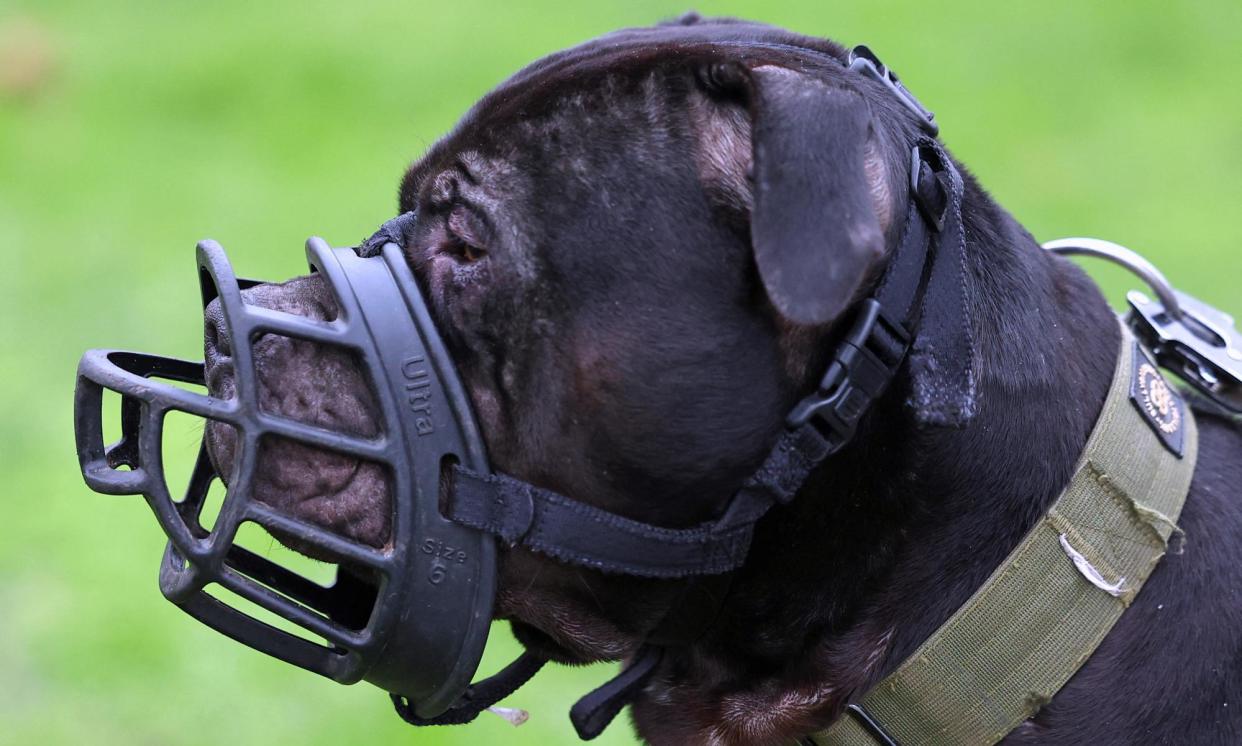Thousands of XL bullies still unregistered as ban in England and Wales begins

Up to 15,000 unregistered XL bully dogs are believed to be owned illegally as a full ban comes into force in England and Wales, with police urging the public to report dogs they believe are in breach of the rules.
Owners had until midday on Wednesday to register their XL bully for a certificate of exemption before the full ban came into force in England and Wales on 1 February, from which point police can seize unregistered dogs and owners face a criminal record and unlimited fine.
Defra said more than 35,000 XL bully dogs had been registered under the exemption scheme by the deadline, and 150 people had applied for compensation to have their dog euthanised – but the number of XL bullies in England and Wales is thought to be much higher.
Dr David Martin, head of animal welfare at the veterinary company IVC Evidensia, told MPs last year he believed there to be at least 50,000 XL bullies in the UK, although some estimates have suggested it could be as many as 100,000.
Related: Scotland to ban unlicensed XL bullies, says Humza Yousaf
Concerns have been raised that police may not have capacity to deal with an influx of seized dogs if there is widespread non-compliance with the new legislation, announced last year after a sharp increase in dog attacks.
The assistant chief constable Mark Hobrough, the dangerous dogs lead at the National Police Chiefs’ Council, said forces were preparing for some “logistical challenges”, with forces working to increase kennel capacity as well as train extra dog legislation officers to assess animals.
“It’s fair to say that there are logistical challenges ahead,” said Hobrough. “We are working actively to increase kennelling capability because we do predict that demand is going to increase and we are going to have to adapt.”
He also urged the general public to report any dogs thought to be in breach of the rules to police. “My urge to people would be if you do see these types of dogs within the community, who aren’t adhering to aspects of the law, to report that effectively via 101, or via 999 if there is an ongoing attack or aggression.”
The NPCC said there were 137 dog legislation officers across England and Wales qualified to assess dogs and identify banned breeds, with training under way to recruit a further 60.
The RSPCA, one of a number of animal welfare organisations that do not support the ban on the breed, said many owners would ignore the new rules, which also include ensuring XL bullies are neutered, muzzled and kept on a lead when in public.
Hobrough said: “It’s an emotive subject and there are obviously parts of communities across the country who feel quite strongly that the legislation is wrong. People are deeply connected to their own dogs and think that their dogs couldn’t fit the criteria of what we’re talking about as being dangerous. I understand that, I do empathise with them.
“But this type of dog in the wrong hands is a very a dangerous thing, and we have unfortunately seen this type of dog connect to undesirable ownership.”
The campaign group Don’t Ban Me License Me had applied for a judicial review to prevent the ban from coming in to force but this application was rejected on Monday.
Some animals had been relocated to Scotland, which was not covered by the ban, but the first minister announced last month plans were under way to introduce similar restrictions there.
The environment secretary, Steve Barclay, said: “The ban on XL bullies is now in place meaning it is illegal to own one of these dogs unless it has been registered. We have delivered our pledge to bring in this important measure to protect public safety and we expect all XL bully owners to comply with the strict conditions.”


